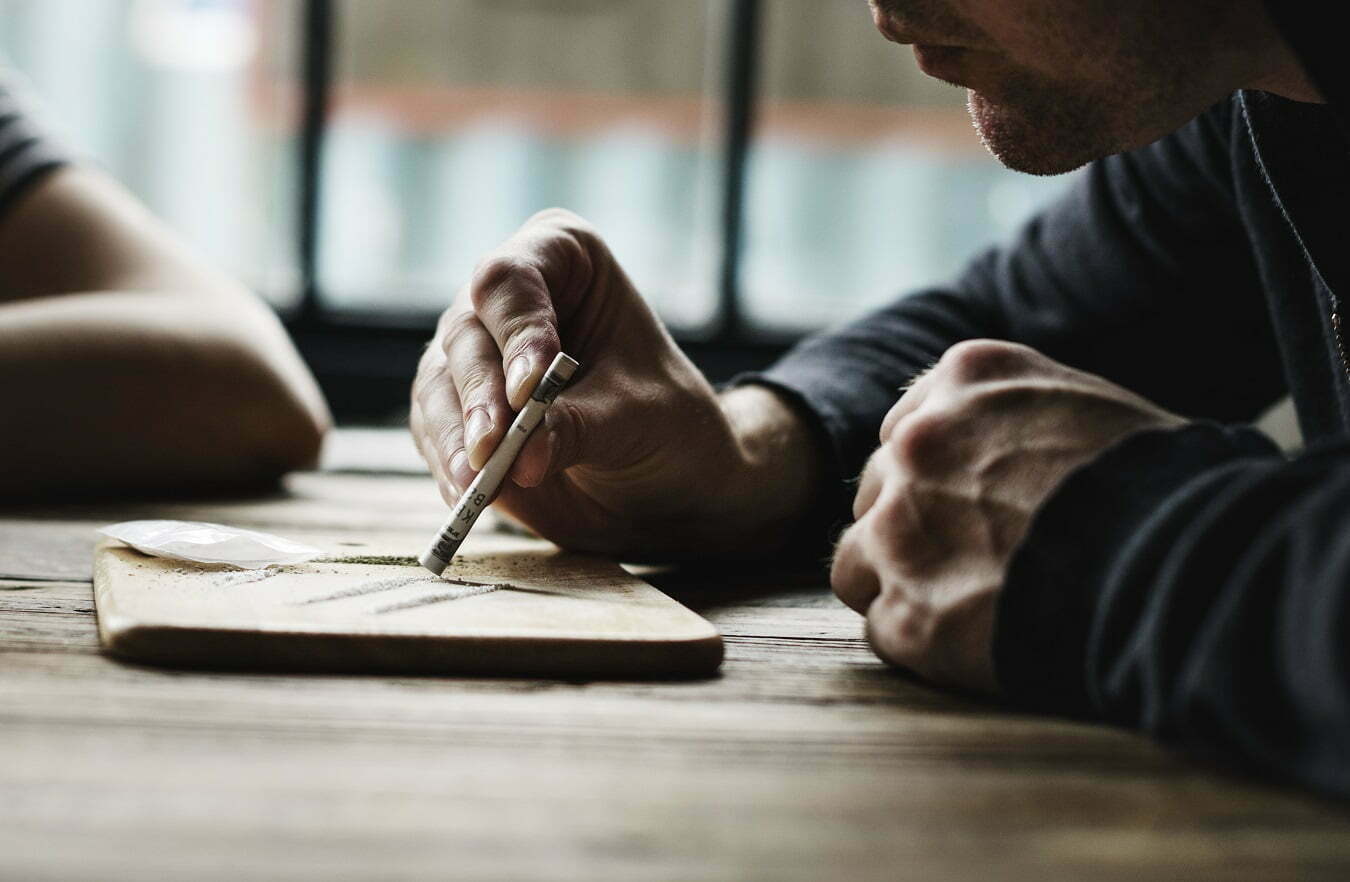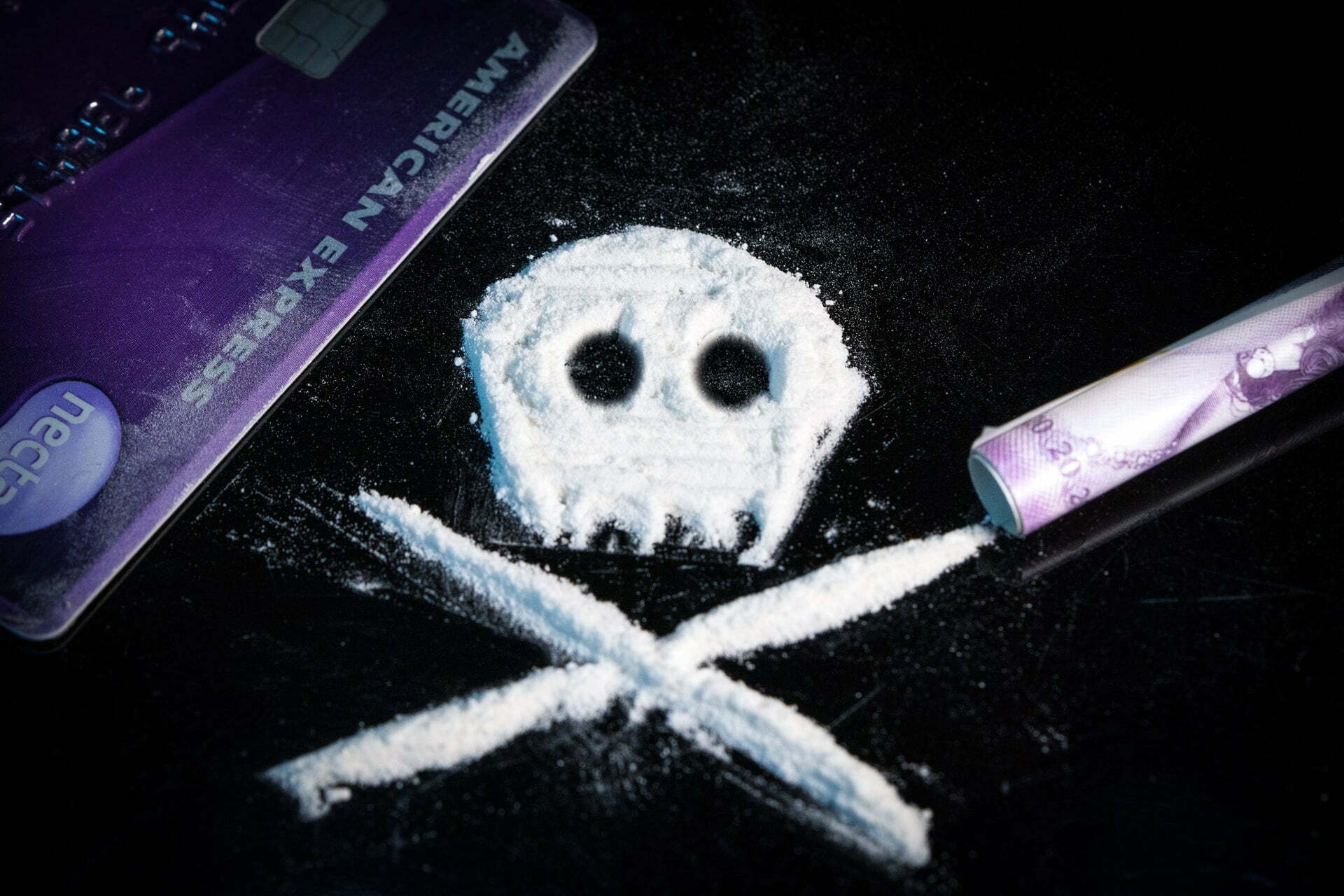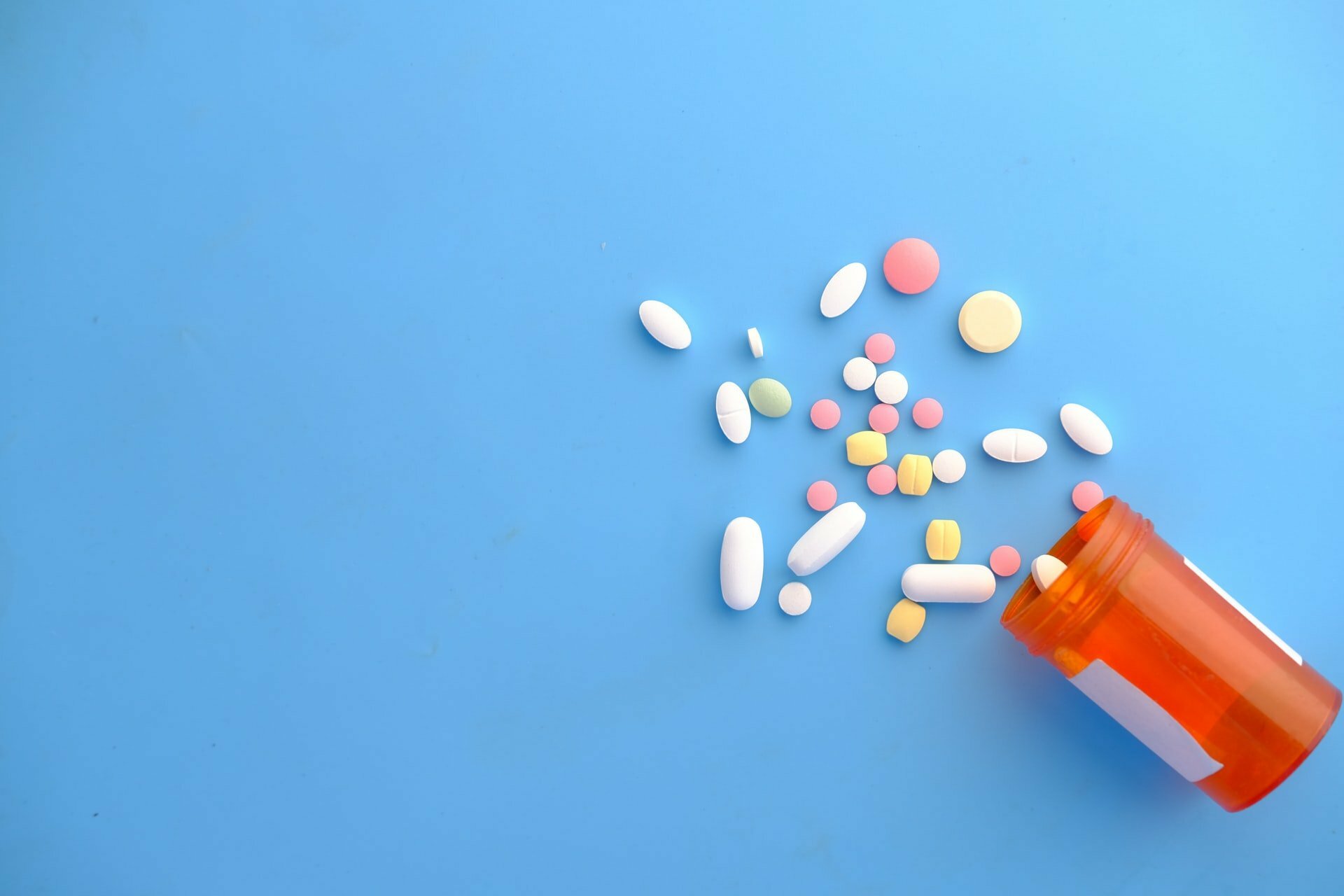- Home
- Types of Addiction
- Coke Addiction Help & Treatment
Coke Addiction Help & Treatment
Coke is a common name for cocaine, a powdered form of a very powerful stimulant drug.
Its freebase version – which is more dangerous as it has not been chemically neutralised with an acid base – is called crack cocaine or just crack.
Typically the powder is snorted up through the nose or mixed with water and injected.
Coke produces an immediate and very potent pleasurable “high” effect, the desire for which causes first a psychological and later a physical addiction in users.
Many coke users develop a tolerance over time, meaning they will need to take bigger hits more frequently to achieve the same effects.
Cocaine Is One Of The Most Addictive Substances In The World

Cocaine is an extremely addictive drug.
There are many risks and dangers associated with long-term usage of the substance, especially when consumed via snorting.
This leads to additional problems such as those concerning the respiratory system and other vital organs.
With cocaine, an individual can quickly become addicted, even from only occasional use.
For this reason, it is important to understand the risks associated with its usage and consider the different treatment options that are available should an addiction develop.
In the UK, cocaine is the second most common recreational drug consumed after cannabis, making it a serious risk to the population’s health.
From 2020-2021 it was reported that 2.6% of the population aged between 16 to 59 has consumed cocaine.
These statistics concern the UK, but cocaine addictions are a worldwide problem, and more and more research is being conducted into this field as governments, communities, and individuals become more aware of the issue at hand.
How To Tell If Someone Has An Addiction To Cocaine

Sometimes, assessing whether someone has an addiction to cocaine can be challenging.
This is because individuals struggling with addiction can become very secretive about their behaviour and activities.
Often, individuals may feel ashamed about their habits and attempt to conceal this from those close to them.
However, because cocaine is such a powerful stimulant, there are some common features that individuals can look out for in order to make a better assessment of someone’s cocaine usage and/or addiction.
Below are some useful questions that may be helpful to ask to assist in diagnosing a cocaine addiction:
- Does the individual attempt to hide or conceal their usage, even if this is not fully?
- Does the individual experience mental health effects such as paranoia when consuming cocaine?
- Is the individual increasingly irritable and restless when they do not have access to cocaine?
- Is the individual struggling with problems in their career, finances or relationships as a result of their cocaine usage?
- Does the individual struggle to go about their daily life without consuming cocaine?
- Does the individual occasionally disappear during social events in order to covertly consume cocaine?
What Happens During Cocaine Addiction Treatment?

If an individual acknowledges their struggles with cocaine, then they may find it difficult to know where to start with seeking rehabilitation for these issues.
This is because not many individuals are familiar with the process of rehabilitation or recovery and the process may seem very foreign.
However, there are some important steps to keep in mind and these are described in the next few paragraphs.
Detox
The first stage of rehab is detoxification.
This is when the individual withdraws from the substance they are addicted to – in this case: cocaine.
Detoxifying can be an unpleasant experience, especially for those with a longer history of addiction, but when conducted in a dedicated detox clinic it carries far fewer risks.
Cocaine is not physically addictive, meaning that individuals do not risk their lives when withdrawing, but the effects can be very unpleasant nonetheless.
These can be categorised into mental health effects and physical effects.
Treatment And Rehabilitation
The next stage of rehab is the actual rehabilitation.
This refers to the various therapies and treatments that individuals may engage with in order to treat the damage they may have suffered as a result of cocaine addiction.
Aftercare
The third and final stage is aftercare.
This is the care that individuals receive after leaving a dedicated rehab centre or addiction treatment programme.
Often, aftercare includes contact with an addiction supervisor in order to have regular progress meetings and raise any concerns they may have about their own recovery.
Individuals may also be recommended to join addiction support networks such as Narcotics Anonymous during this stage, though more information is provided on these techniques in the later paragraphs.
Which Type Of Cocaine Addiction Treatment Is Most Suitable For Me?

No two individuals will experience addiction in the same way -it is expressed and presented differently in every case.
For this reason, there is no set addiction treatment programme for cocaine addiction as the same methods will not have the same effectiveness when applied to different individuals.
One of the first decisions individuals can make about their rehab, however, is the choice between inpatient and outpatient care.
Inpatient Care
Inpatient care refers to entering a dedicated rehab centre to partake in rehab treatments such as therapy and other holistic treatments.
This is the most recommended options, as it allows individuals to focus wholly on their recovery, without outside influence or distraction.
This option is more suitable for those with a longer history of addiction or those who may require a more supervised and monitored approach to rehab.
Outpatient Care
Outpatient care refers to addiction treatment programmes that are attended whilst the patient is living outside of a centre.
This may mean that individuals make regular visits to a counsellor or addiction support network, but it is a more part-time method and is not as regular as inpatient care.
Outpatient care is more suitable for those with a shorter history of cocaine usage, those who have already progressed through detoxification, or those who prefer a more independent approach to addiction recovery.
The following paragraphs outline some of the most common treatments for cocaine addiction that individuals may experience during their time in both inpatient and outpatient care.
Talking Therapy

This is the most common type of treatment that individuals will engage with during rehab due to the strong psychological effects of long-term cocaine usage.
In general, talking therapy helps individuals change negative thought or behavioural patterns that they may have developed as a result of their cocaine addiction.
Often, individuals will work one-to-one with a professional counsellor in order to talk about, analyse and change their associated addictive thought patterns.
The most popular of these techniques is Cognitive Behavioural Therapy (CBT).
This has a high rate of success in helping individuals develop their own coping mechanisms and tools to deal with their cocaine addiction in the long term.
Motivational Interviewing

Similar to talking therapies, Motivational Interviewing (MI) is based on the idea that individuals have their own internal resources and techniques to help manage their cocaine addiction.
Through regular practise, individuals are encouraged to access these internal resources through self-reflection and encouragement from their counsellor or therapist.
This method is especially good for those who prefer a more independent approach to rehab and recovery as it allows individuals to work more individually, using their own motivation and determination to recover.
MI is most often recommended alongside other treatments such as CBT and those in the following paragraphs as part of a balanced addiction treatment programme.
Incentives And Rewards

Especially used in the early stages of rehabilitation, incentives and rewards are a great way to encourage certain behaviours and discourage others.
For example, those who have just initiated cocaine addiction rehabilitation may be offered incentives as part of the detoxification process.
This means that these individuals would be rewarded for positive behaviours such as cutting down on their cocaine usage or stopping completely.
Depending on the organisation through which addiction support is sought, rewards may include vouchers or other activity-based incentives.
This is discussed with the individual before beginning any type of treatment.
Interventions

This is a more traditional method of approaching cocaine addictions that can be employed to massively increase an individual’s likelihood of seeking further care or cutting down.
In general, an intervention refers to the presence of a counsellor or interventionist during a discussion between an individual and those close to them -often the friends and family affected by their addiction.
During this process, the individuals involved may share how addiction has affected their lives, aiming to improve the communication and understanding between the two parties.
From this, friends and families may be more perceptive to the individual’s addiction behaviours, understanding more about the reasons behind their addiction.
This will help the individual struggling with addiction and those around them to make more educated suggestions for potential addiction treatment programmes in the future.
Pharmacological Interventions

Unlike other addictive substances such as heroin, there are no official substances which can be used as a replacement for cocaine.
Although this can make withdrawal more challenging, there are some drugs that can be prescribed to help with the individual symptoms of detoxication.
For example, where suitable, many individuals are prescribed medicines that assist in sleeping, as insomnia is a common problem when withdrawing from cocaine.
There are also many drugs that can be prescribed if individuals display addictions to multiple substances such as alcohol.
Addiction Support Groups

As mentioned previously in this article, one of the most often prescribed treatments for cocaine addiction is enrolment in addiction support networks.
Including well-known groups such as Alcoholics Anonymous or Narcotics Anonymous, these groups are formed in order to improve communications between individuals about their issues, as well as sharing experiences and learning from others.
When part of an addiction support network, individuals will attend meetings regularly (depending on the local services’ availability), meeting with like-minded individuals to discuss the issues that have faced or overcome.
Via this method, individuals may learn new techniques for coping with their cocaine addiction, as well as gain a fresh perspective on addiction itself.
Often, individuals report strong positivity for this type of treatment, as it allows them to connect with people who may be in similar situations and helps them to realise that addiction is a common problem and does not need to be dealt with alone.
How To Help Someone You Know With Cocaine Addiction

If you recognise addiction in someone you know -either a loved one, friend or colleague– then knowing how to help them can be challenging.
As mentioned in this article, individuals can often become very secretive about their behaviours and may react negatively to being approached in this fashion.
In this instance, simply letting the individual know that you are available to talk is the best first step.
The individual may not immediately act on this, but just having someone they know to acknowledge their struggles can provide a great mental boost.
Over time, individuals may become more comfortable with speaking about their issues and coming forward.
It is important to maintain an open mind and listen to everything they have to say.
Supporting someone with a cocaine addiction may be challenging, so it’s important to consider addiction treatments that may accommodate this such as family drug support or couples therapy depending on the situation.
Getting Help For Cocaine Addiction

Get in contact with Rehab Recovery today on 0800 088 66 86 to discuss any issues relating to addiction or to get free and confidential advice for yourself or for someone you know.
Let us help you take your first step on the road to a happy and healthy new life.







